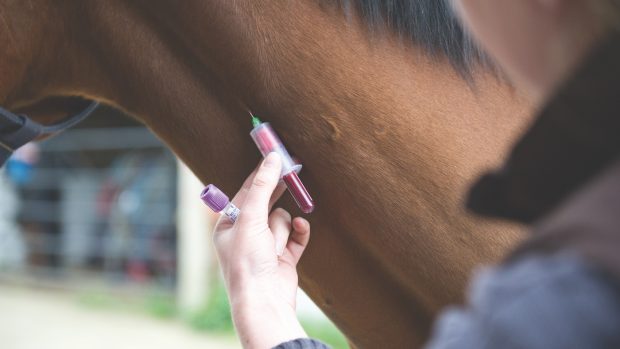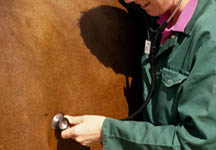A stallion that last month tested positive for Equine Viral Arteritis (EVA) in Staffordshire was imported last year, but has not been used for breeding since it arrived in the UK.
The results of a Defra enquiry found that the stallion was imported in a batch of four horses in March 2009.
“The importer is a warmblood breeder, selling showjumping and dressage horses,” said a Defra spokesman.
“The horse remains under official restrictions while its owner, vets and breeder consider the options available to them.”
EVA is a highly contagious viral infection that causes a high rate of abortion among pregnant mares.
The disease causes damage to a horse’s arteries and is transmitted through the respiratory tract — via coughing and snorting — or via semen from an infected stallion.
EVA has a wide range of signs — including fever, conjunctivitis and swelling of the lower legs — and although there is a vaccine available for it, the disease itself is not treatable.
“If a stallion with EVA has passed its acute stage of infection — when it will transmit the disease via its respiratory system — it will only infect other horses via its semen,” said British Equine Veterinary Association (BEVA) president and AI expert Dr Madeleine Campbell.
If not acutely infected, the stallion can be euthanased or castrated in isolation, or re-exported if cleared by the importing country.
Dr Campbell added: “This case illustrates that import requirements alone are not sufficient to ensure freedom from EVA and demonstrates why it is crucial that all stallions are tested free of EVA before they begin breeding duties [each time] and when they are imported into the UK.”
This article was first published in Horse & Hound (2 September, ’10)




